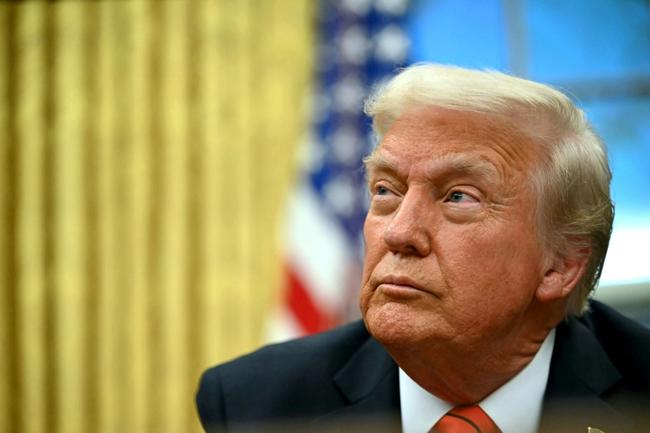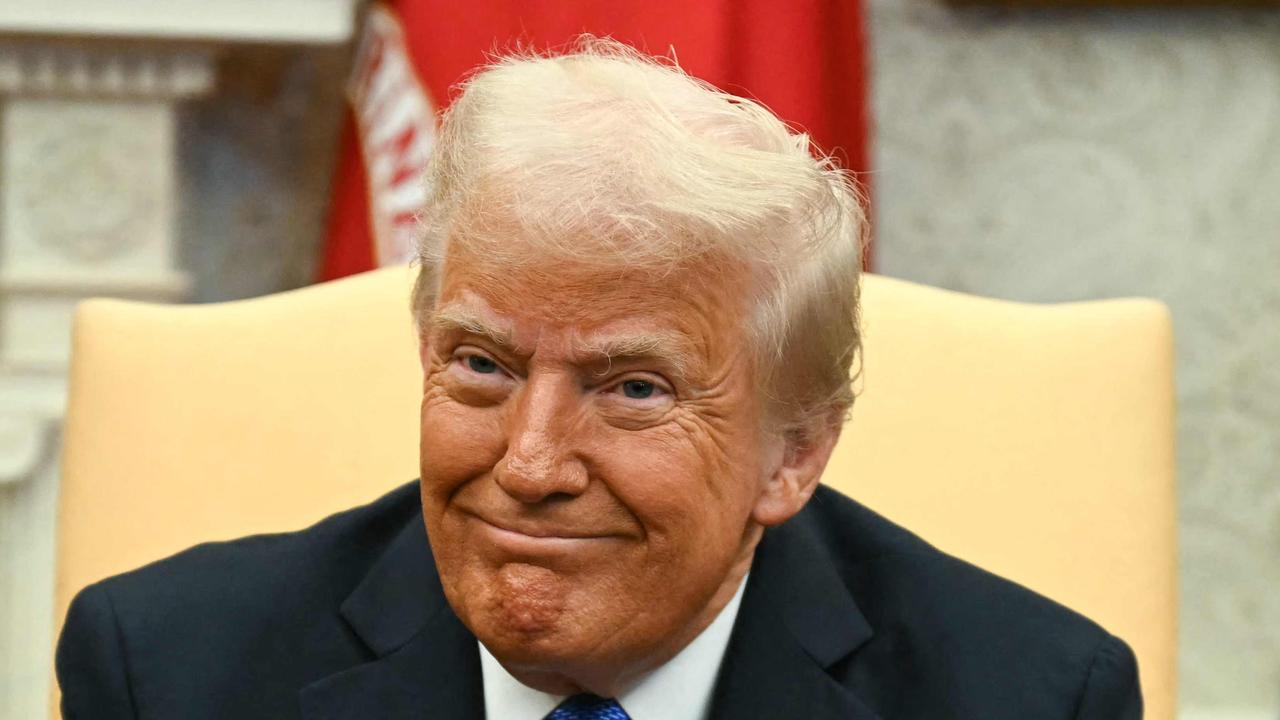Trump to impose new 25% tariffs on steel, aluminum
Trump to impose new 25% tariffs on steel, aluminum

Breaking News
Don't miss out on the headlines from Breaking News. Followed categories will be added to My News.
US President Donald Trump plans to slap 25 percent tariffs on steel and aluminum imports Monday, stepping up his long-promised trade war despite warnings from Europe and China.
Trump told reporters aboard Air Force One while flying to the Super Bowl on Sunday that the metals levies would be applied to "everybody."
But global stock markets rose as traders with "tariff fatigue" appeared to shrug off the Republican president's latest threats.
Trump said the tariffs would be formally announced on Monday. The White House said he would sign a number of executive orders in the Oval Office on Monday but it was not clear if any of them covered the promised tariffs.
Canada and Mexico -- which Trump has already threatened with tariffs -- are the biggest steel importers to the United States, according to US trade data. Brazil and South Korea are also major steel providers.
"President Trump has made it clear that an important part of an America First Golden Age is steel production," National Economic Council Director Kevin Hassett told CNBC.
Trump has also promised an announcement on Tuesday or Wednesday on broader "reciprocal tariffs" to match the levies other governments charge on US products.
He imposed sweeping tariffs during his 2017-2021 presidency to protect US industries, which he believed faced unfair competition from Asian and European countries.
- 'Losers' -
But his latest threats are still causing disquiet. Canadian steelmakers warned of "massive" disruption.
Targeting Canadian steel and aluminum is "completely baseless and unwarranted, we must retaliate immediately," Catherine Cobden, president of the Canadian Steel Producers Association, said in a statement.
The European Commission said it would "react to protect the interests of European businesses, workers and consumers from unjustified measures."
French President Emmanuel Macron vowed in an interview aired Sunday to go head-to-head with Trump over his wider tariff threats against the EU, though he said the United States should focus its efforts on China.
German Economy Minister Robert Habeck said a tariff conflict "only has losers" but that Europe would respond in a "united and determined manner."
Around 25 percent of European steel exports go to the United States, according to consultancy Roland Berger.
Britain's steel industry body called the tariff plan a "devastating blow."
Trump has already shown his fondness for weaponizing the United States' power as the world's largest economy, ordering tariffs on key trade partners China, Mexico and Canada soon after he took office.
He paused 25 percent levies against Canada and Mexico for a month after both countries vowed to step up measures to counter flows of the drug fentanyl and the crossing of undocumented migrants into the United States.
- 'Tariff fatigue' -
But he went ahead with tariffs on China, the world's second biggest economy, with products entering the United States facing an additional 10 percent levy.
Chinese retaliatory tariffs targeting US coal and liquified natural gas come into play on Monday.
Chinese foreign ministry spokesman Guo Jiakun said Monday that "there is no winner in a trade war and tariff war."
Trump also focused on steel during a visit by Japanese Prime Minister Shigeru Ishiba last week. The American leader said he had secured an agreement for Japan's Nippon Steel to make a major investment in US Steel, instead of seeking to take over the troubled firm.
Trump, who has promised a "new golden age" for the United States, insists the impact of any tariffs would be borne by foreign exporters without being passed on to US consumers, despite most experts saying the contrary.
But he did acknowledge this month that Americans might initially feel economic "pain" from the levies.
Wall Street's main indices moved higher on Monday despite the tariff threat. London and Frankfurt set fresh records, while Hong Kong and Shanghai stocks also rose.
"The fact that global equity indices are higher at the start of the week could be a sign of tariff fatigue," said Kathleen Brooks, research director at trading group XTB.
The dollar also rose against the Canadian dollar, the Mexican peso and South Korean won on Monday.
burs-dk/mlm
Originally published as Trump to impose new 25% tariffs on steel, aluminum


